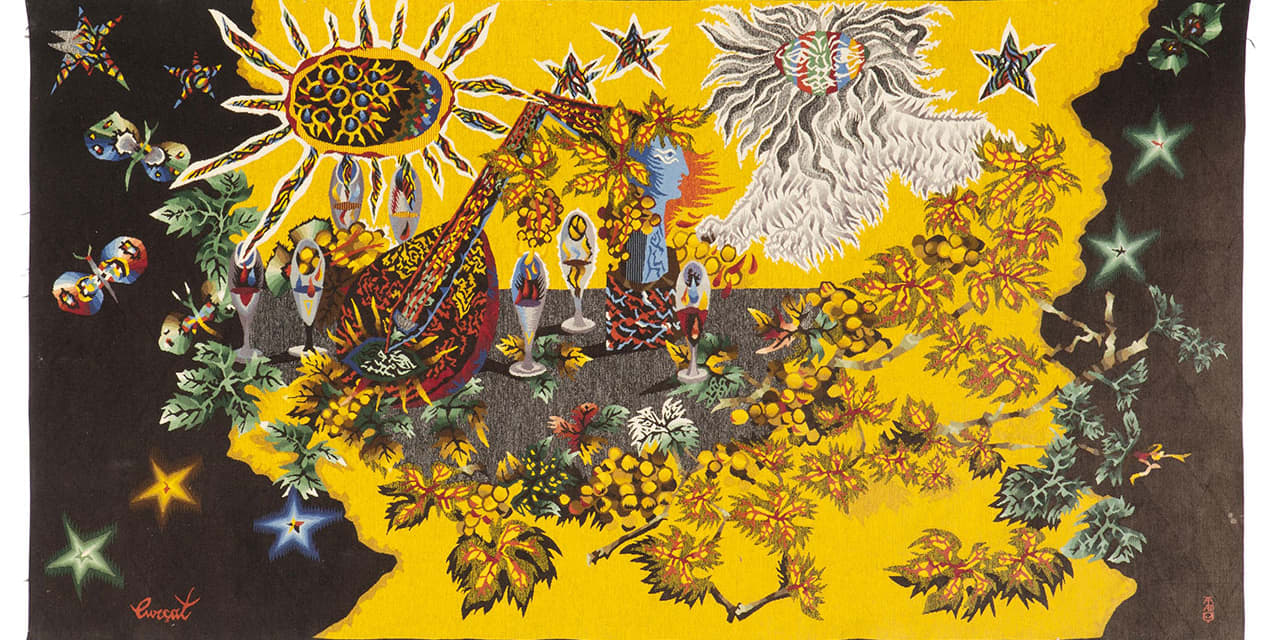Adding a statement textile can immediately transform a space.
“It can become the hinge pin of a room that conveys the story of a personal aesthetic or a show-stopping centerpiece, such as hanging tapestries or customized patterns and colors that speak to exclusivity and personality,” Miller said.
Carina Villinger, Sotheby’s head of 20th-century design, also noted the visual power of a textile in a room. “A bold textile can act like a piece of art or a painting in a room,” Villinger said. “Bright colors or graphic patterns have the ability to provide a visual focus for any room and transform it.”
When you have a statement piece, however, you’ll need to consider the look and feel of the rest of the décor in the space. There are no hard and fast rules; selecting a textile can simply be dictated by your personal style. For example, if you lean toward subtlety and your textile is heavily patterned, intricate, scenic or includes a multitude of colors, you might want to focus on furniture with solid or subdued upholstery so as not to compete with the textile, Barzilay Freund said.
Philip Thomas, founder and principal of Phillip Thomas Inc. in New York City, suggested utilizing the patterns in a textile as the basis for accents throughout the space, elevating the entire room. For a more maximalist look, he’s chosen contrasting patterns and colors that pick up on the main textile.
If you’re drawn to an eclectic style, try mixing periods and motifs in the same space, such as an antique verdure (nature-themed) tapestry with a Scandinavian or Italian mid-century sofa, for example, Barzilay Freund said. “Nature themes are timeless and add nuance and texture to modern design, and they tap into today’s interest in biophilic design.”
Alternatively, you might choose a contemporary minimalist or monochrome wall textile and juxtapose it with antique seating, such as a Windsor chair or French daybed, he said.







